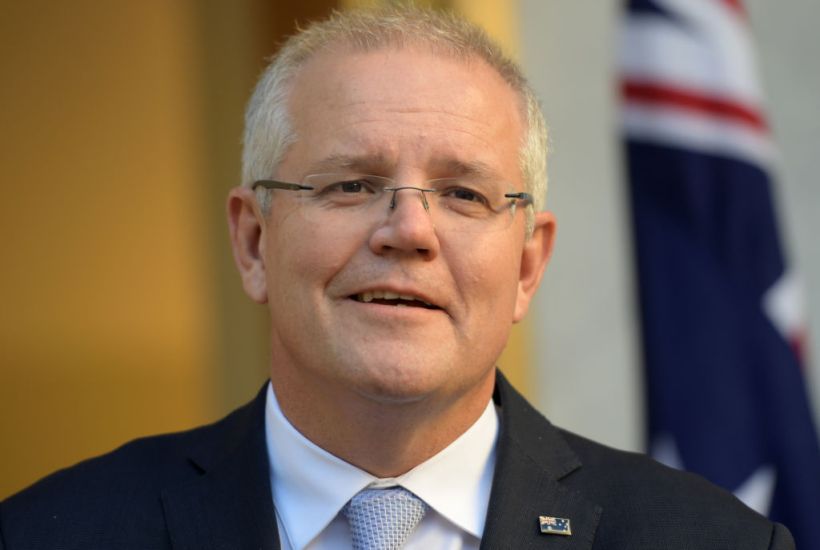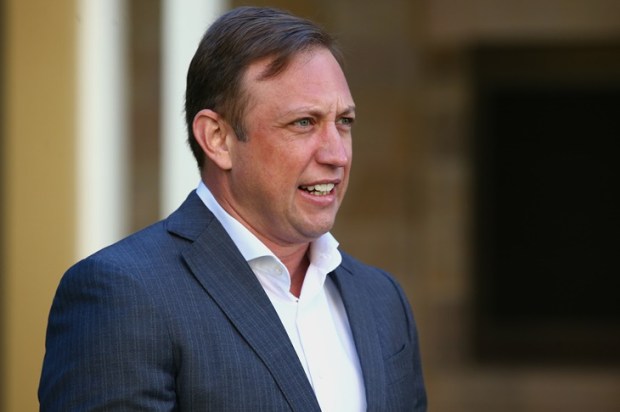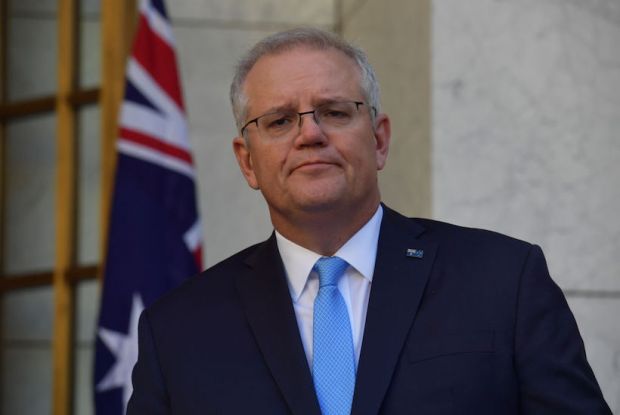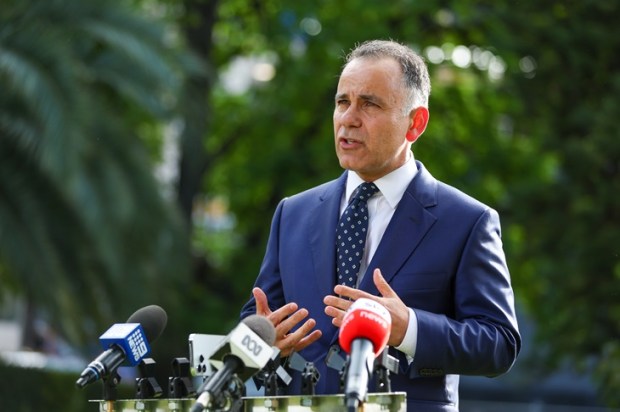The week in politics, the week to come.
The theme for this election-period weekly column has been Backwards and Forwards. Just now, good old Janus is getting a thorough workout on both sides of federal politics.
First to Labor. The unopposed rise of Anthony Albanese to the vacant leadership is supposed to be moving the unexpectedly defeated party of the working man forwards. But what to make of the most Left Labor leader since Doc Evatt? A leader who promises to bring Labor back to the centre but whose Instagram feed boasts very recent selfies with that paragon of economic responsibility, Jeremy Corbyn? A leader who opposed boat turnbacks. A leader whose motto is “Fighting Tories” – that is, fighting the mainstream centre of Australian politics.
If a right-winger like Bill Shorten tacked hard Left to lose on 18 May, what will lefty Albo deliver? Perhaps that’s a question that should be asked of Labor’s once all-powerful Right faction, which couldn’t even unite behind one of its own, whether Chris Bowen or Jim Chalmers, to take on Albanese to make the Labor leadership a contest rather than a coronation, and give the rank-and-file a debate about ideas and what Labor as a party really stands for.
That they need such a debate was made painfully obvious by the woeful performance of brief deputy leadership aspirant Clare O’Neil on the ABC’s Insiders programme. O’Neil believes (bless her cotton socks) the bar to election victory is always set higher for Labor because they’re about redistributing power and vested interests (she’s talking about you, Rupert!) don’t like that.
That Labor failed to clear a bar that at this election was set so low as to be on the ground, put there by most of the commentariat, journos from the love media and three years of consistent opinion polls, didn’t seem to have registered on O’Neil as she did her sooky la-la with nary a challenging word from craggy keeper of the Bob Hawke flame Barrie Cassidy. But if that’s the level of reflection that Labor’s going with, they can be assured the new leader’s standard assertion they’ll return to government in three years’ time is perfunctory bollocks.
On the government side the shock remission of supposedly terminally ill patient, the Liberal party, has many Liberals still in the grip of post-election euphoria. But Scott Morrison isn’t looking back: rather he’s moved quickly to set his own stamp on his government. His new ministry is a generally savvy bundling of skills and talents, with a raft of new faces in Cabinet filling the vacancies of those who chose to go at the election.
Sensibly, Morrison keeps Cabinet’s key economic pairing, Josh Frydenberg and Mathias Cormann. Frydenberg’s intellect and salesmanship, and Cormann’s two terms of Finance experience, will serve the government well, especially as it must use its economic responsibility mandate to find efficiencies and savings to protect the imminent surplus (although it looks like they’ll bank the $4 billion set aside for Melbourne’s East-West Link road project, which Victorian premier Daniel Andrews won’t swallow his pride and accept). Joining the government’s infrastructure tsar, Alan Tudge, with them in Cabinet is a way overdue promotion for the Harvard-educated and politically-savvy “Tudgie” and links economics to nation-building.
Morrison also played with Labor minds by making his economic team – Frydenberg, Tudge, Assistant Treasurer Michael Sukkar and new parliamentary secretary Jane Hume – an all-Victorian affair. Beyond their collective high ability, it sends a message to Andrews and other ungodly Mexicans in the Coalition’s supposedly weakest state that this government means business.
Former Queensland premier, Campbell Newman, has pointed out, however, Bananabenders have done relatively less well in the ministry, although the Queensland’s rebellion against Shorten, Labor and their anti-Adani allies won Morrison the election. All a reminder that appointing ministries in a federation isn’t necessarily always about personal merit.
Appointing Ken Wyatt not as only a first Indigenous Indigenous Affairs minister, but first Indigenous Cabinet minister full stop, looks back into 40,000 plus years of history, but looks forward by saying being Aboriginal is no bar to holding the highest offices in the land. Nice one, Prime Minister.
But appointing Sussan Ley to the politically-sensitive Environment portfolio in place of the failed Melissa Price is a questionable Morrison call. If her former tenure as Health minister is any guide, Ley will add little in terms of policy leadership, will be an easy mark for powerful and greedy vested interests who’ll beat a path to her door, and is unlikely to resist the wokest of woke Canberra bureaucracies (and in a company town where those who don’t vote Labor vote Green, that’s saying something). It’s now up to Ley to prove she’s worth her resurrection and isn’t just bulking up the numbers of women in the Cabinet.
But with Albo now confirmed, and the government refreshed in Morrison’s image, this month’s astonishing election result fast is becoming history. It’s time to look forward not just with the next three years in mind, but with the known and yet to be known social, economic and political challenges Australia will face for the next decade and well beyond.
Yet, ironically, the side that will prevail in looking ahead is the one which best learns and applies the lessons of the recent past: not just how this election was won and lost, but the whole tortuous journey since John Howard departed in 2007 that got Australian politics there.
Got something to add? Join the discussion and comment below.
Got something to add? Join the discussion and comment below.
Get 10 issues for just $10
Subscribe to The Spectator Australia today for the next 10 magazine issues, plus full online access, for just $10.


























Comments
Don't miss out
Join the conversation with other Spectator Australia readers. Subscribe to leave a comment.
SUBSCRIBEAlready a subscriber? Log in